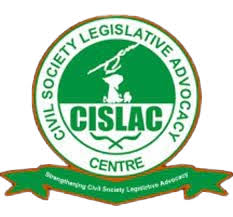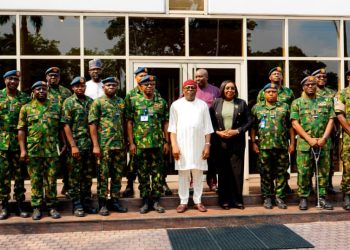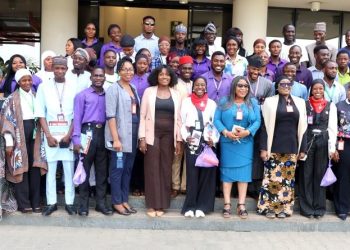By Nkechi Eze
The Civil Society Legislative Advocacy Centre (CISLAC) has called for urgent global financial reforms, the cancellation of illegitimate debts, and stronger legislative engagement in national development financing. The call was made by the Executive Director of CISLAC and Head of Transparency International Nigeria, Comrade Auwal Ibrahim Musa (Rafsanjani), during the ongoing Financing for Development Conference in Sevilla, Spain.
Addressing an audience of civil society organisations, global development experts, and government officials, Rafsanjani emphasized the need for African legislators to be more actively involved in shaping and overseeing financial decisions that have long-term implications for national development.
“Legislators must not be sidelined,” he asserted. “They have the constitutional mandate to approve budgets, scrutinise loans, monitor debt agreements, and ensure that public and borrowed funds are used transparently and equitably.”
At the core of CISLAC’s advocacy is a demand for the total cancellation of Debts by Odious or Fraudulent Origin (DBOs), those acquired without public consent, accountability, or developmental benefit. Rafsanjani decried the devastating impact of such debts, describing them as a major obstacle to development and a burden on future generations.
“These debts are unjust. Their enforcement continues to stall development, weaken sovereignty, and deepen inequality,” he said.
CISLAC aligned with international development organisations such as Christian Aid in urging the UK government to impose legislative limits on private creditors suing sovereign governments in UK courts, a move that could provide debt relief to Nigeria, whose private debt is largely governed under UK law. Rafsanjani also backed global calls for mandatory private creditor participation in debt renegotiations and advocated for a comprehensive United Nations-led debt workout mechanism.
In addition to debt relief, CISLAC echoed the positions of Oxfam and Tax Justice Africa by calling for increased concessional financing from developed countries and the urgent elimination of fossil fuel subsidies that continue to worsen climate vulnerability in low-income nations.
Turning to domestic fiscal governance, Rafsanjani stressed the need for legislative institutions to close tax loopholes, tackle illicit financial flows, and hold multinationals and wealthy elites accountable for tax evasion. He called on lawmakers to demand public access to beneficial ownership registers and to enforce stricter oversight of professionals enabling money laundering and tax evasion.
“Lawmakers must strengthen financial integrity laws and play a decisive role in ensuring responsible public financial management,” he said. “Transparency in debt contracting and consistent oversight across the budget cycle are non-negotiable if we want to safeguard public funds and achieve development goals.”
Rafsanjani also challenged the structure of global financial governance, describing institutions like the International Monetary Fund (IMF) and World Bank as skewed in favour of wealthy nations.
“We need a global financial architecture where African voices are heard and respected. Oversight must become a right, not a courtesy,” he stated.
He called for African legislative bodies to be fully empowered to hold both domestic and international actors accountable. He further urged that debt negotiations and national spending priorities be conducted with transparency and inclusiveness, particularly in sectors such as climate, health, and education. He highlighted that responsible and equitable financing of the Sustainable Development Goals (SDGs) in Nigeria and across Africa was crucial to fighting poverty, reducing inequality, and promoting peace, justice, and inclusive institutions.
Rafsanjani urged the Nigerian government to ensure full implementation of the resolutions from the Sevilla conference, with active participation from civil society and all relevant stakeholders to ensure sustainable and impactful outcomes.
“We are here in Sevilla to push for a fairer global system, stronger legislative oversight, and development models that truly reflect the needs and aspirations of the people,” he concluded.
The Financing for Development Conference continues with high-level discussions focused on debt justice, climate finance, tax equity, and inclusive economic transformation. The global gathering features participation from African civil society leaders, lawmakers, and Transparency International chapters, led by the organisation’s Chief Executive Officer, Maíra Martini, who has called for more transparent and accountable frameworks in debt management and public finance.

















